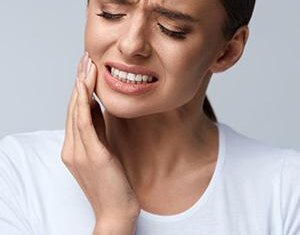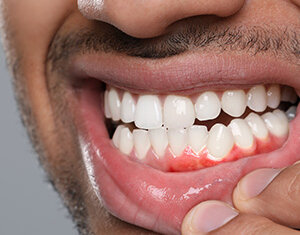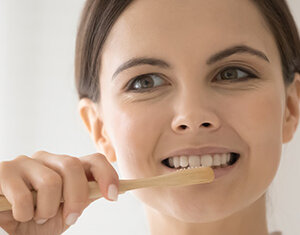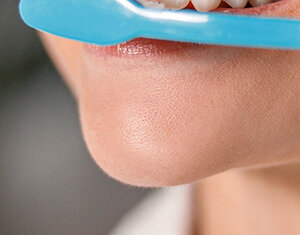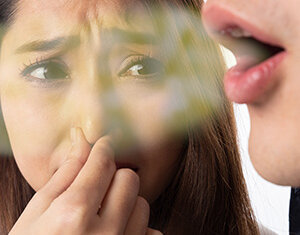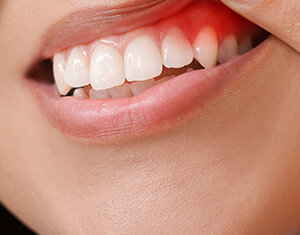Blog
The Effect Of Smoking On Dental Health
Oral Care

Are you stressed due to persistent bad breath or noticing discolouration and decay in your teeth? These could be signs of a deeper issue stemming from smoking. The damaging effects of smoking on teeth are far-reaching, affecting not only your breath but also the integrity of your teeth and gums. Here, we will discuss how smoking affects oral hygiene, and bad breath reasons and suggest practical solutions to address these issues.
Understanding of Smoking's Direct Impact on Oral Hygiene
The burning of tobacco causes chronic dryness in the mouth and reduces the natural protection provided by antimicrobial saliva. Smoking weakens the body's defences, leading to tooth loss if not addressed. Don't ignore even minor symptoms. Quitting smoking is difficult but important. It's also important to note that smoking can lead to oral health risks beyond just lung problems, so regular check-ups are recommended.
Does Smoking Cause Tooth Decay?
Smoking can cause serious harm to dental health by speeding up the accumulation of plaque and reducing the production of saliva. Saliva is essential in neutralising harmful acids and washing away food debris, which helps to prevent tooth decay. If there is not enough saliva, teeth become more vulnerable to decay. Therefore, smoking poses significant risks to dental health, underscoring the importance of maintaining good oral hygiene habits to counteract its negative effects.
Home Remedies For Bad Breath to Fight from Smoking
- Chewing aromatic seeds like fennel, cardamom, and clove with potent antibacterial properties freshens breath post-smoking while jaw motions stimulate salivation, reducing dryness.
- Sipping anti-inflammatory fenugreek tea or lemon water washes oral linings alongside neutralising acidic nicotine residues through alkaline infusion.
- Old school saltwater rinses through mechanical cleansing tames stubborn tar, facilitating conventional cleaning while dislodging food remains.
- Using mint/tea tree oils-based toothpaste formulation boosts plaque biofilm, tackling tenacity from lingering nicotine stains through mild abrasion approaches.
- Curd consumption allows healthy probiotic bacteria restoration, combating acidogenic microbial species in the gut oral axis through competitive symbiosis, thereby arresting opportunistic infections.
- Professional dental cleaning bi-annually or custom trays bleach therapy also assists restorative freshness, overcoming deeply set intrinsic stains through external interventions.
The Effect Of Smoking On Dental Health
- Smoking effect on teeth, causing tooth discolouration, bad breath reasons and long-term capacity impairment. Thus, there is an urgent need for constructive awareness.
- Teeth refractory irrelevant nicotine-induced stain retention challenges removal through external bleaching almost mandatorily from deep-set tar residues.
- Fouled mouth odour or smoker's breath from volatile compounds lower social confidence and interaction reluctance risks.
- Prolonged usage results in intrinsic tooth damage through invisible chemical alterations, eventually causing microcavities and higher caries risks.
- Periodontal gum disease's rapid progression through sustained irritation, inflammation, and heat threats alongside barrier formation risks against cleaning fosters deep gum pocket infections unchecked.
- Risks exacerbation among diabetic patients through immunological turmoil and microvascular compromisation nurturing opportunistic fungi colonisation almost unhindered.
- Eventual risks of tooth mobility through alveolar bone loss risk premature extraction necessity much earlier among smokers by almost a decade easily.
Why Smoking Causes Bad Breath
Smoking can harm dental health by reducing salivary secretions, disrupting oral protection and shielding bacteria from unhindered metabolic activities. Smoking affects teeth and also damages oral tissue through heat and sustained irritation, which throws off immunity defences, making infections and gum disease more likely, which causes a reason for mouth smell.
Conclusion
Smoking can cause harm to our dental health, appearance, and functionality. To minimise its negative effects, we must seek professional dental care, maintain good oral hygiene habits like brushing our teeth with the best toothpaste Dabur Meswak, and consider using home remedies. By adopting these strategies, we can combat the detrimental effects of smoking and safeguard our dental health.
FAQs
-
Can quitting smoking reverse damage to my teeth and gums?
Quit smoking for better oral health and reduce the risk of damage. Stopping smoking can halt gum disease and improve oral hygiene. Professional treatment may be needed for deep stains.
-
How does smoking affect my risk of oral cancer?
Smoking increases oral cancer risk due to harmful tobacco chemicals damaging mouth cell DNA and causing mutations.
-
Are electronic cigarettes a safer option for my teeth?
E-cigarettes reduce exposure to harmful chemicals but still pose oral health risks like dry mouth and gum disease. Quitting smoking is the best option for dental health.
-
How can I effectively remove tobacco stains from my teeth?
For light stains, try professional cleanings and whitening toothpaste. For tougher stains, consider professional whitening or veneers. See your dentist for advice.
-
What are the first signs of gum disease I should look for as a smoker?
Early signs of gum disease include red, swollen, or bleeding gums, bad breath, and receding gum lines. If you notice any of these symptoms, it's crucial to seek dental advice to prevent further progression.









